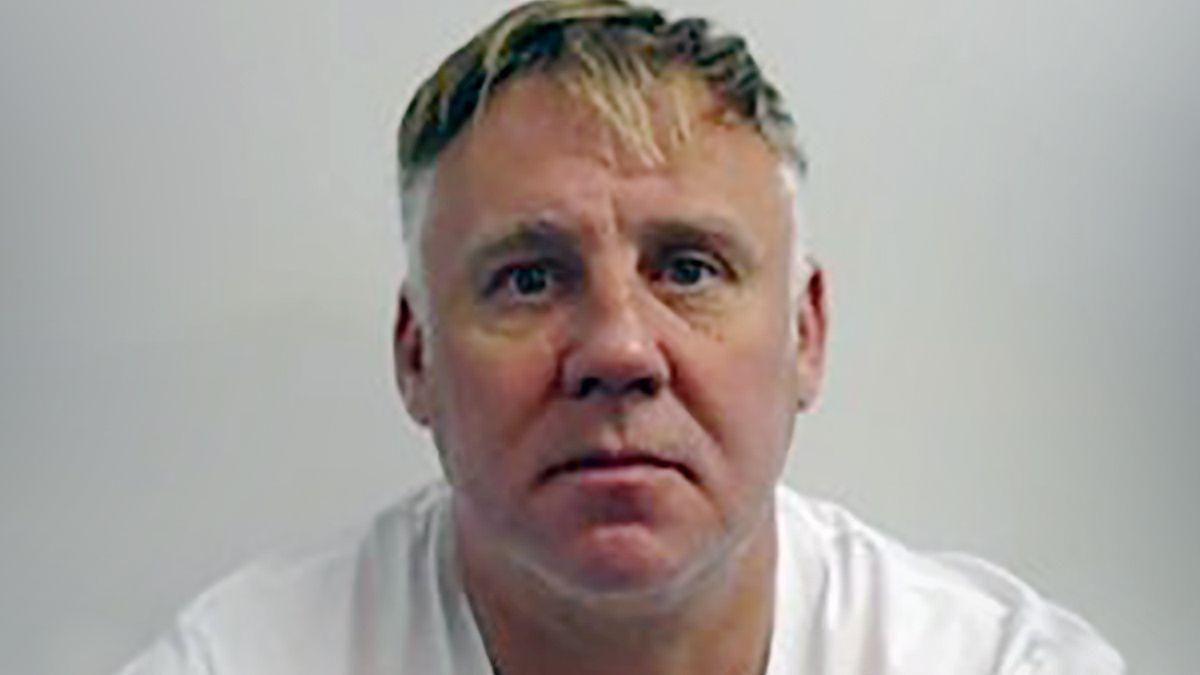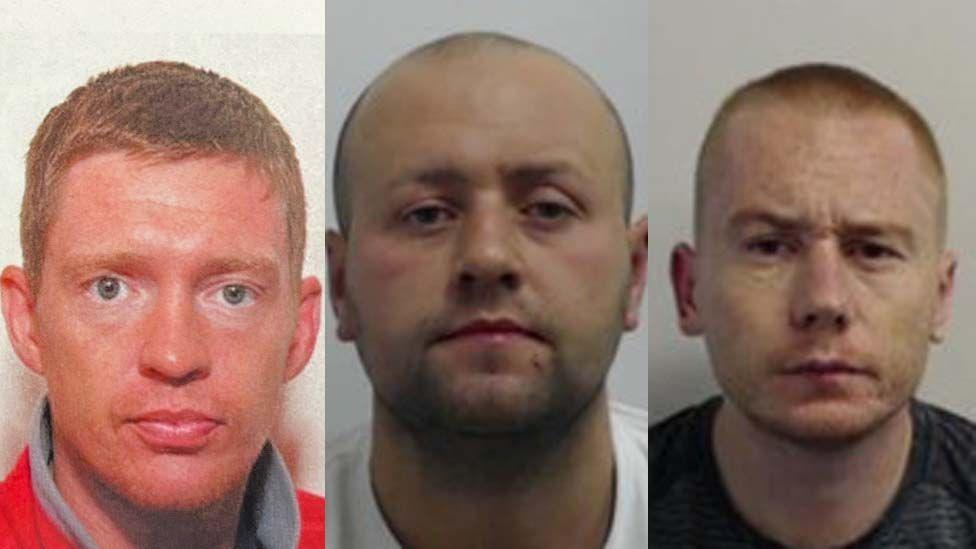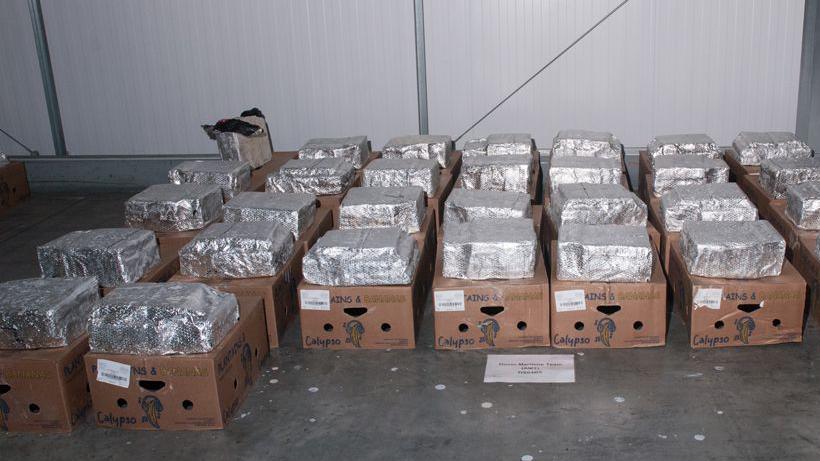Crime boss jailed for £100m plot to smuggle cocaine in banana boxes

Jamie Stevenson had been one of the UK's most wanted men
- Published
A Scottish gangster who orchestrated a plot to smuggle cocaine worth £100m from South America in boxes of bananas has been jailed for 20 years.
Jamie ‘Iceman’ Stevenson admitted directing the importation of the drug, which was seized by Border Force teams at Dover in September 2020.
The other members of his gang were jailed for a total of 29 years.
The plot was uncovered after an encrypted messaging platform used by criminals was infiltrated by French police.
Stevenson had also planned to flood Scotland with millions of Etizolam tablets, also known as street valium, from a factory in Kent.
The 59-year-old, from Rutherglen in South Lanarkshire, was a leading figure at the top level of organised crime in Scotland.
He was once described as Scotland’s answer to Tony Soprano, the mafia boss portrayed in television series The Sopranos. In 2022, he featured on a list of the UK’s 12 most wanted men.
The top-level gangster brought down by a shipment of bananas
- Published2 October 2024
Crime boss told cocaine profits would be 'life changing'
- Published2 September 2024
Scotland's 'Tony Soprano' smuggled cocaine in banana boxes
- Published29 August 2024
Last month Stevenson admitted his role in producing and supplying Etizolam and smuggling a tonne of cocaine - which police estimated would have been worth £100m on the streets – into the UK.
He was jailed for a total of 20 years when he appeared for sentencing at the High Court in Glasgow.
Five other men - David Bilsland, 68; Paul Bowes, 53; Gerard Carbin, 45; Ryan McPhee, 34; and Lloyd Cross, 32 - also pled guilty to serious organised crime and drug offences.
Carbin was jailed for seven years; Bilsland, Bowes and Cross were each jailed for six years; and McPhee was jailed for four years.
Lewis Connor, 27, was jailed for three years in July after the investigation found encrypted phone messages which proved he had set fire to properties and vehicles across Central Scotland.

Gerard Carbin, Ryan McPhee and Lloyd Cross were all sentenced at the High Court in Glasgow
The drugs operation, which spanned the UK, Spain, Ecuador and Abu Dhabi, had been targeted by police in an inquiry which was named Operation Pepperoni.
Officers had been investigating reports that Bilsland, a Glasgow fruit merchant, had links with organised crime. He was then seen meeting Stevenson in a hotel in Spain.
At about the same time, officers had learned that Stevenson was involved in setting up a factory in Kent which was producing millions of Etizolam tablets.
The factory was raided in June 2020 and Stevenson was arrested in Glasgow.
He was taken to England by police before being released on bail. He then fled the UK, spending almost two years on the run before being arrested in the Netherlands.
The National Crime Agency said Stevenson continued to direct the importation of cocaine into the UK from abroad.
Watch judge sentence drugs baron Jamie Stevenson to jail
Prosecutor Alex Prentice KC earlier told the court that the messages on the encrypted phone network EncroChat showed Stevenson discussing plans to import kilo blocks of cocaine with Cross, as well as the use of Bilsland provide “an appearance of legitimacy”.
A tonne of the drug was seized in a raid by Border Force teams at Dover in September 2020.
They found 119 packages of cocaine concealed in boxes of bananas from Ecuador, which were destined for Glasgow. It took officers three days to recover the drugs from the shipment.
Defence counsel Thomas Ross KC told the court Stevenson had known exactly what he was doing and had made “a series of bad decisions” for which the motivation was obvious.
“He takes ownership of all those decisions and doesn’t seek to cast blame in anybody else’s direction,” he said.

Deputy Crown Agent Kenny Donnelly, who leads the fight against serious organised crime for the Crown Office and Procurator Fiscal Service, said Stevenson and his associates were involved in drug trafficking "on an industrial and global scale".
He said the encrypted messages had shown that Stevenson was the ringleader who directed the others.
"The cocaine they were planning to distribute would have undoubtedly contributed to misery in our communities," he said.
“These convictions are testament to the forensic and meticulous work undertaken by specialist Crown Office prosecutors to bring Stevenson and his five co-accused to justice.”
The judge, Lord Ericht, told Stevenson that he had directed "a complex operation" for the importing and supplying cocaine and played "a leading role" in manufacturing and distributing etizolam tablets.